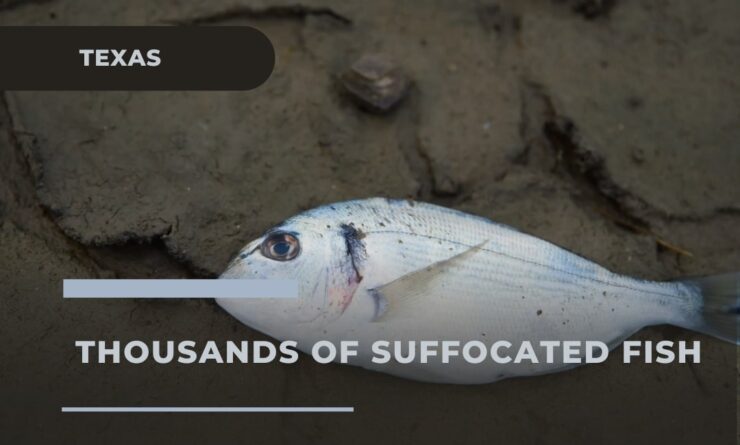Texas beach near Houston, leaving beachgoers stunned as they witnessed thousands of dead fish washing ashore, according to Insider. The primary victims of this environmental catastrophe were Gulf menhaden, a species of fish that fell prey to the critically low oxygen levels in the surrounding waters. This resulted in a grim spectacle at Quintana Beach, with the lifeless bodies of the fish covering the shoreline for miles.
Quintana Beach County Park, in a Facebook post, explained the cause behind this mass mortality. They stated that when the water temperature escalates above 70 degrees Fahrenheit, it becomes challenging for menhaden to obtain sufficient oxygen for survival. The situation is exacerbated in shallow waters.
Similar to the recent incident in Florida where a flesh-eating bacteria was found in seaweed clumps, the situation in Texas also raises concerns about the health of our oceans and the creatures living within them
The world’s oceans have already lost approximately 2% of their oxygen since the 1950s. If the current rate persists, they are projected to lose up to 4% more by the end of this century. Katie St. Clair, the manager of the sea life facility at Texas A&M University at Galveston, expressed her concerns to NPR. She emphasized that seawater temperatures are on the rise and that the situation demands vigilant monitoring.
Julia Wellner, a glacial marine geoscientist at the University of Houston, was present at the scene with a team of scientists studying beach sediment. She shared a distressing video of the incident on Twitter, expressing her bafflement at the scale and intensity of the fish kill. She questioned why such a dramatic event occurred at that particular location and time, hinting at a potentially alarming future.
Yesterday I took a dozen international visiting sedimentologists to Quintana Beach, TX. I might be an expert on some things on the beach but this fish kill baffled all of us. Went for miles. Low oxygen sure but why here and now? Why this dramatic? Scary future. @TPWDnews pic.twitter.com/TVBdJEJL7v
— @wellner@mastodon.green (@houston_wellner) June 11, 2024
This mass fish kill is indeed a cause for concern as it points towards a grim future. Oceans, which constitute 97% of the habitable space on Earth, are vital for sustaining life. Oxygen in the ocean is as crucial as it is on land because marine plants and animals depend on it for survival. If deoxygenation continues to worsen, it will wreak havoc on marine ecosystems and life on land.
Deeper ocean waters experiencing deoxygenation can also produce toxic planet-warming gases. These gases could potentially reach the surface, get released into the atmosphere, and contribute to further warming.
A report by the International Union for Conservation of Nature, quoted by Copernicus Marine Service, states,
“Ocean deoxygenation is one of the most pernicious, yet under-reported side-effects of human-induced climate change.”
Human activities such as burning dirty energy like coal, gas, and oil, deforestation, agriculture, and more have led to an abundance of heat-trapping gases in our atmosphere. The ocean absorbs more than 93% of the Earth’s warming from our changing climate.
To slow down ocean deoxygenation, it is crucial to reduce our production of planet-warming gases and ocean nutrient pollution. This can be achieved by accelerating the transition from dirty energy sources, like gas, coal, and oil, to clean energy sources, like wind and solar power. Additionally, reducing our usage of single-use plastic, which is made using oil and typically ends up further polluting the ocean, is also essential.












